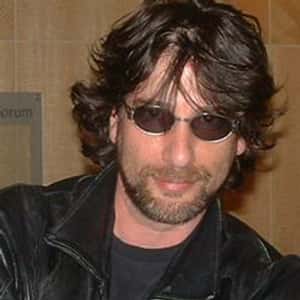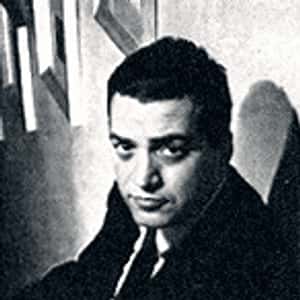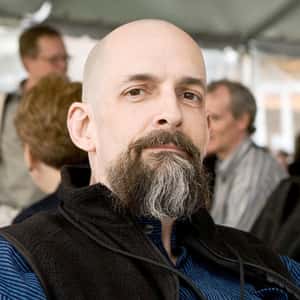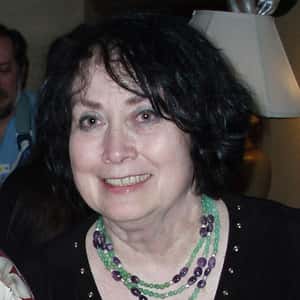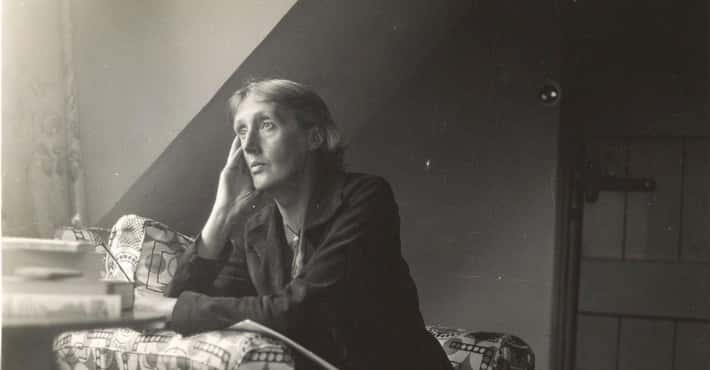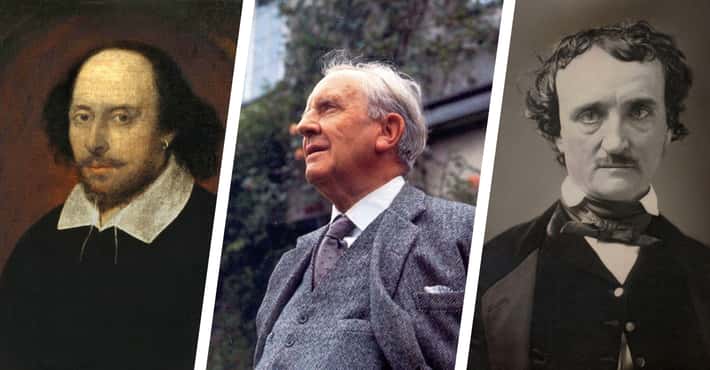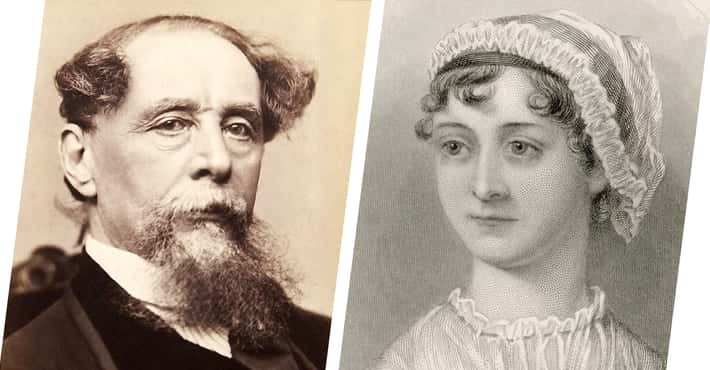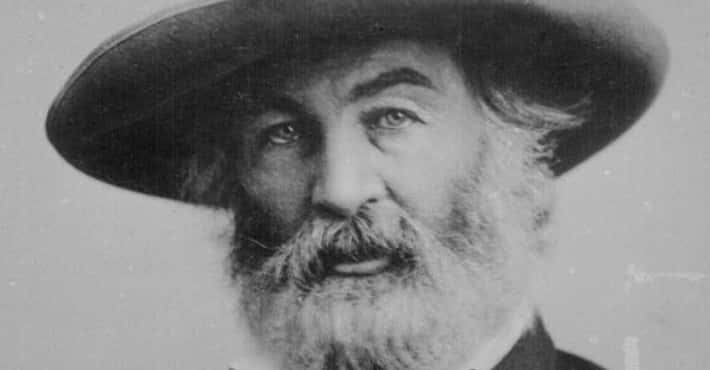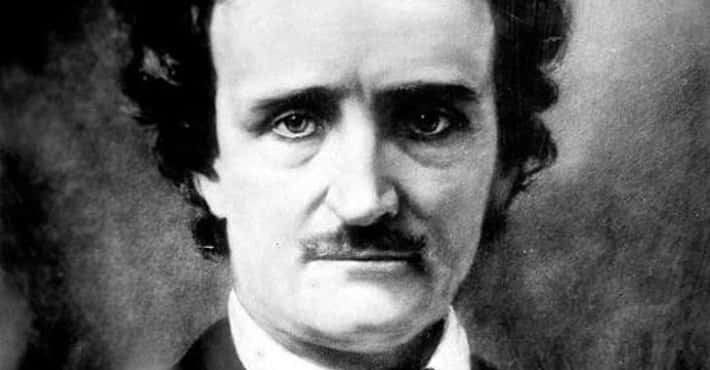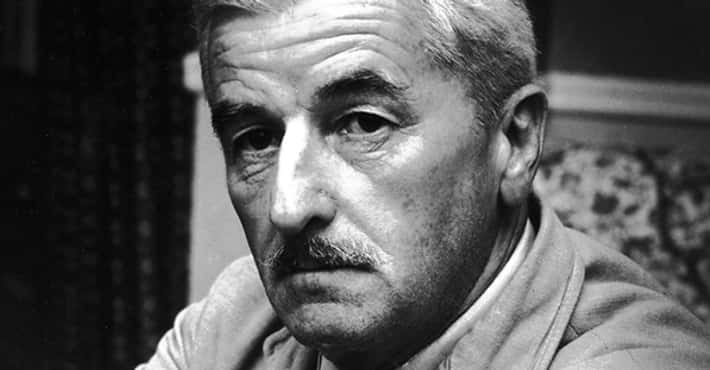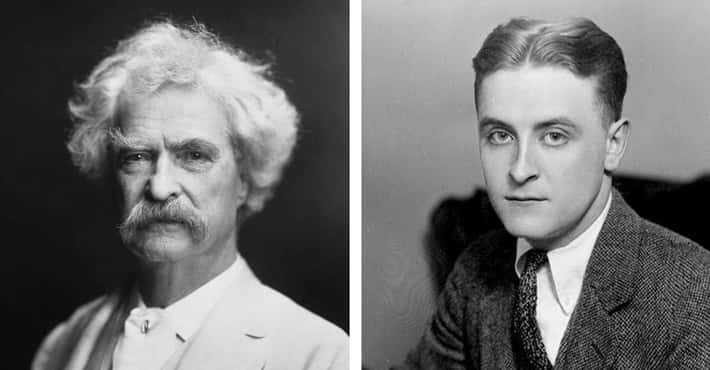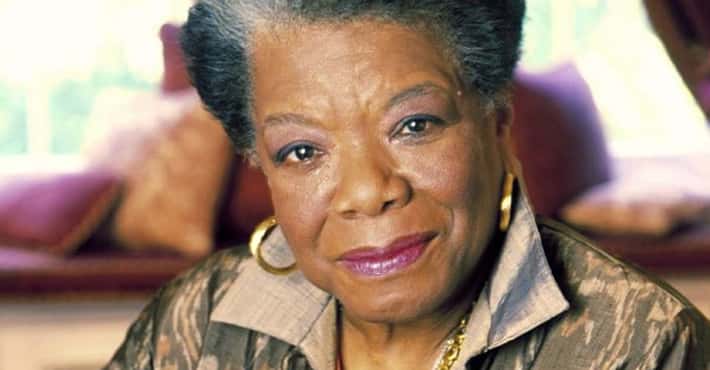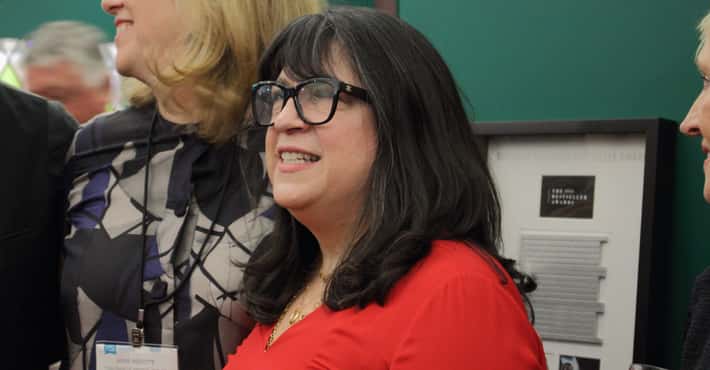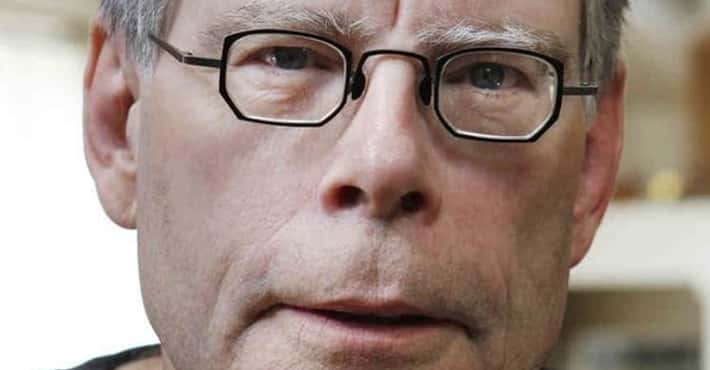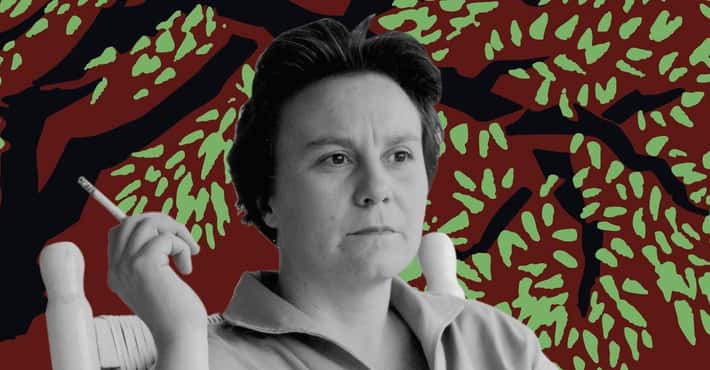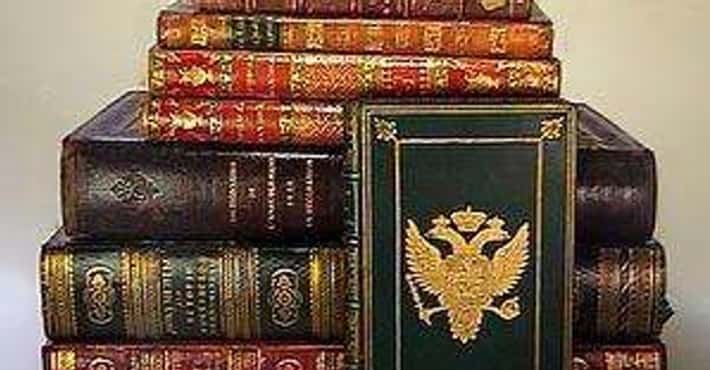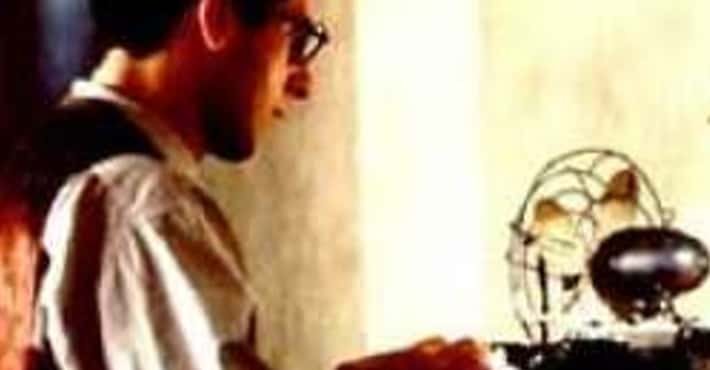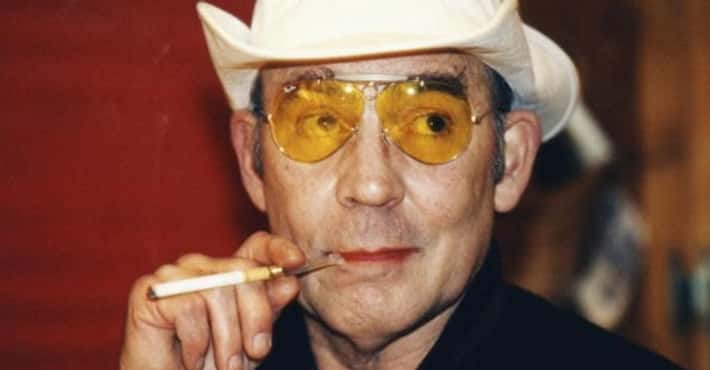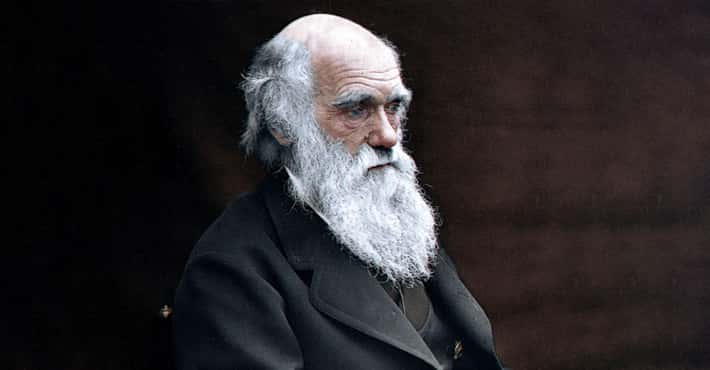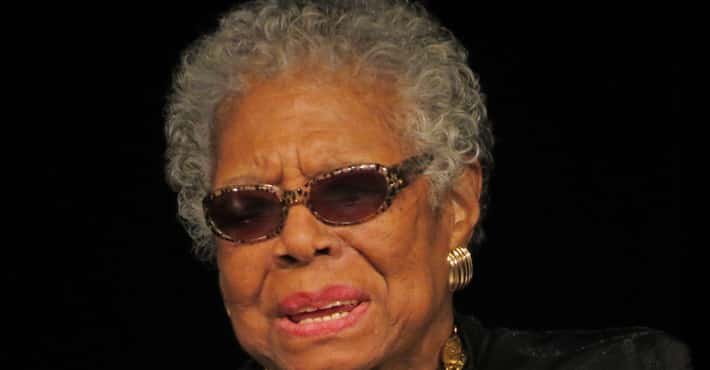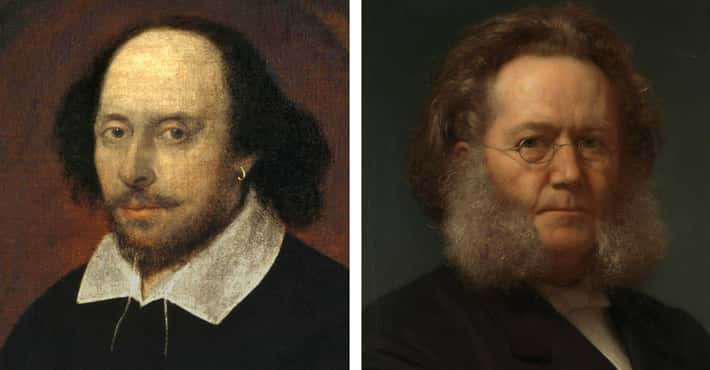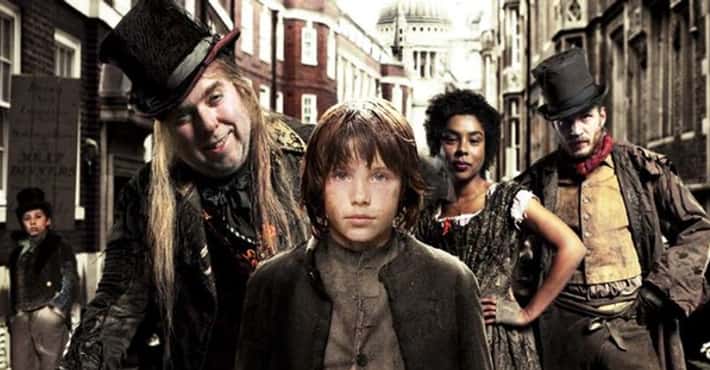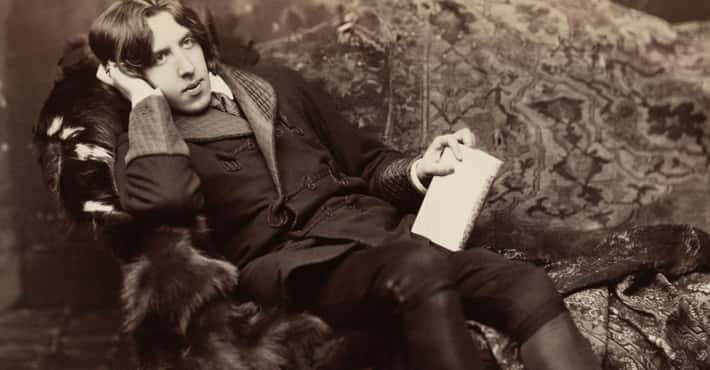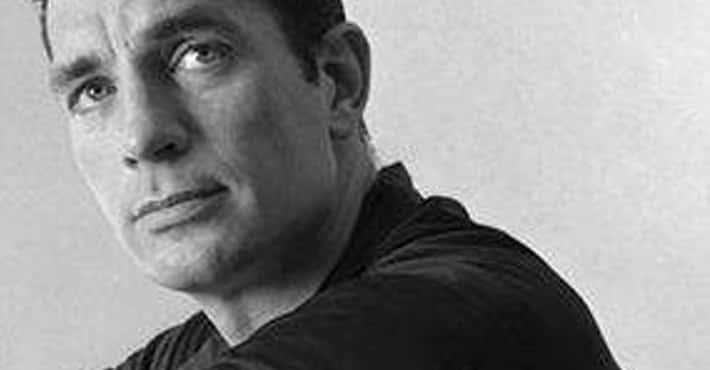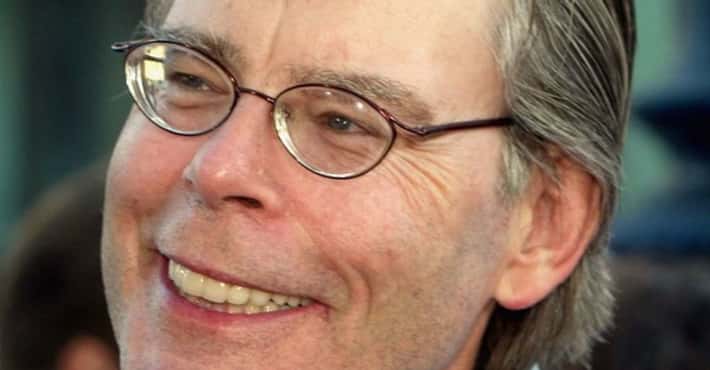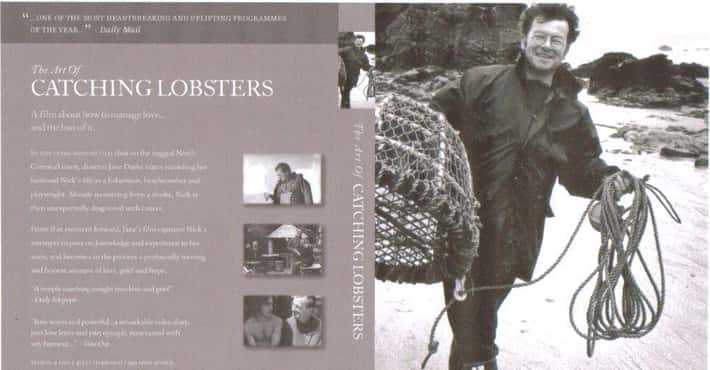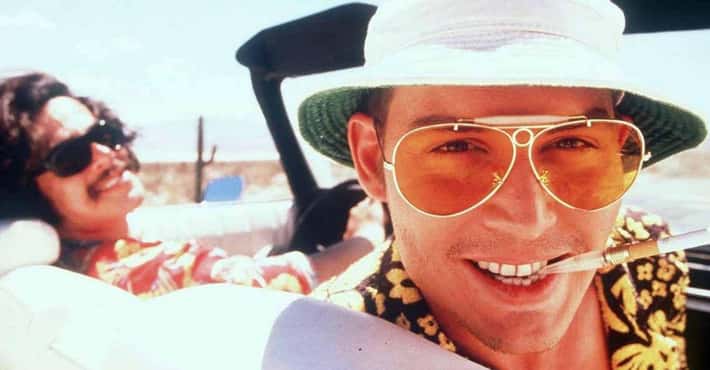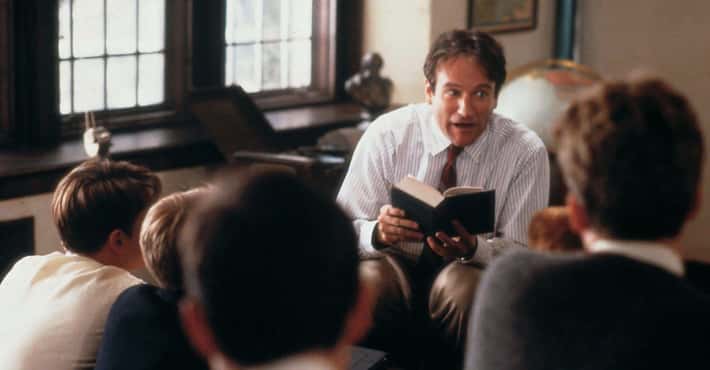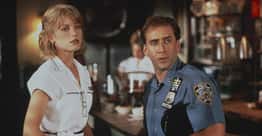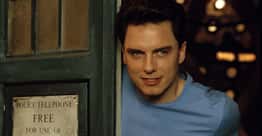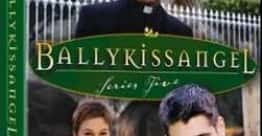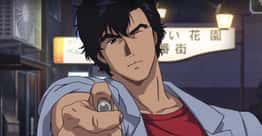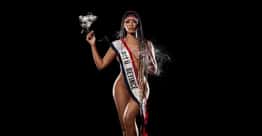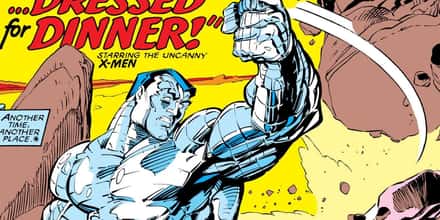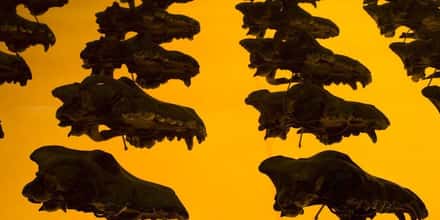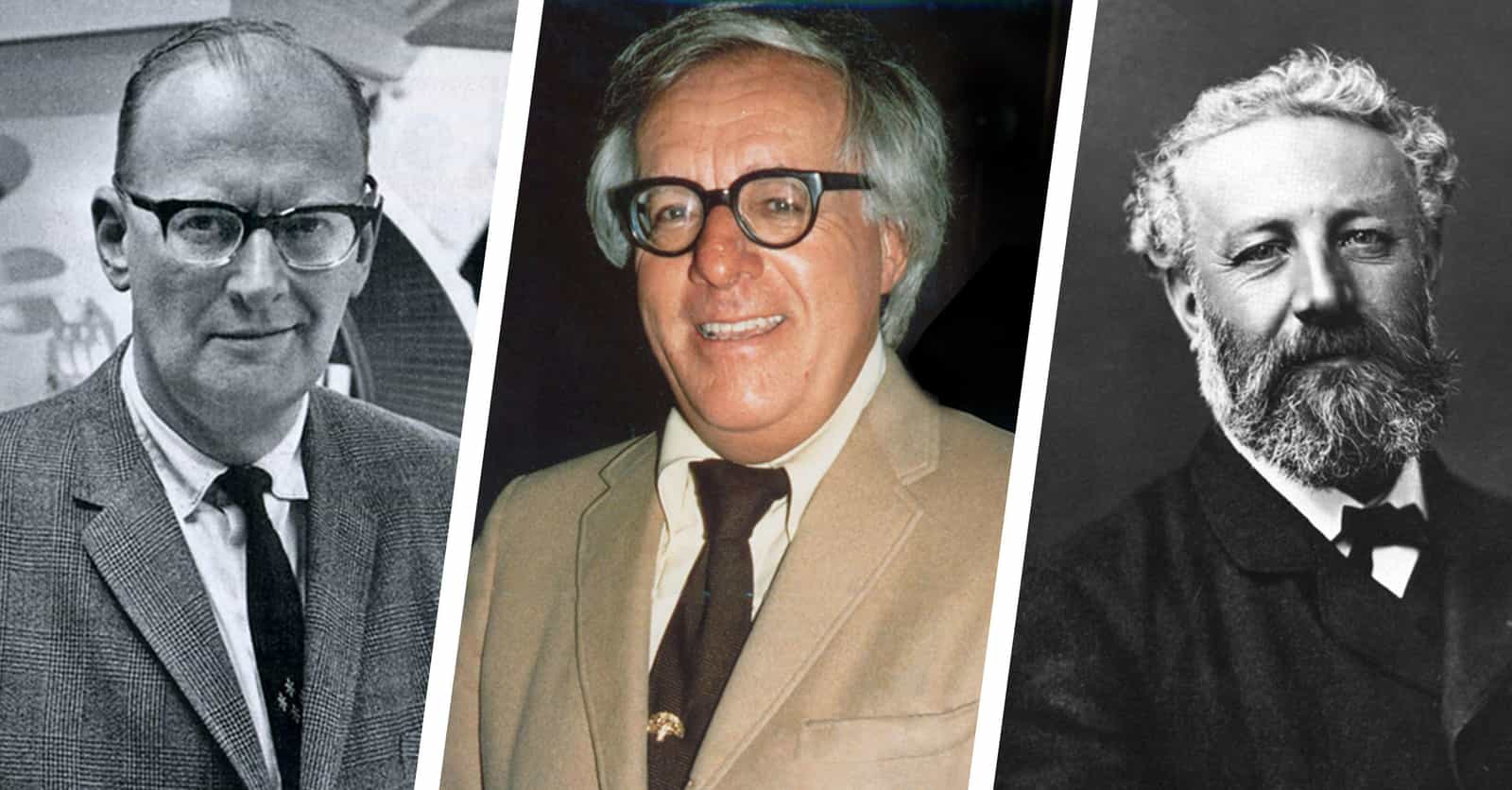
- The Call of Cthulhu and Other Weird Stories, At the Mountains of Madness, The Dunwich Horror and OthersHoward Phillips Lovecraft (US: ; August 20, 1890 – March 15, 1937) was an American writer of weird fiction and horror fiction. Born in Providence, Rhode Island, he spent most of his life there, and his fiction was primarily set against a New England backdrop. Lovecraft was never able to support himself from earnings as an author and editor, and he subsisted in progressively strained circumstances in his last years. He died of cancer at the age of 46.Lovecraft was virtually unknown during his lifetime and published only in pulp magazines before he died in poverty, but is now regarded as one of the most significant 20th-century authors of weird and horror fiction. Among his most celebrated tales are The Rats in the Walls, The Call of Cthulhu, At the Mountains of Madness, The Shadow over Innsmouth, and The Shadow Out of Time. His writings were the basis of the Cthulhu Mythos, which has inspired a large body of pastiches, games, music and other media drawing on Lovecraft's characters, setting and themes, constituting a wider body of work known as Lovecraftian horror.
- Beowulf, Marvel 1602, American GodsNeil Richard MacKinnon Gaiman (born November 10, 1960) is an English author of short fiction, novels, comic books, graphic novels, nonfiction, audio theatre, and films. His works include the comic book series The Sandman and novels Stardust, American Gods, Coraline, and The Graveyard Book. He has won numerous awards, including the Hugo, Nebula, and Bram Stoker awards, as well as the Newbery and Carnegie medals. He is the first author to win both the Newbery and the Carnegie medals for the same work, The Graveyard Book (2008). In 2013, The Ocean at the End of the Lane was voted Book of the Year in the British National Book Awards.
- Ender's Game, Speaker for the Dead, Ender's ShadowOrson Scott Card (born August 24, 1951) is an American novelist, critic, public speaker, essayist, and columnist. He writes in several genres but is known best for science fiction. His novel Ender's Game (1985) and its sequel, Speaker for the Dead (1986), both won Hugo and Nebula Awards, making Card the only author to win the two top American prizes in science fiction literature in consecutive years. A feature film adaptation of Ender's Game, which Card co-produced, was released in 2013. Card is also the author of the Locus Fantasy Award-winning series The Tales of Alvin Maker (1987–2003). Card is also a professor of English at Southern Virginia University, has written two books on creative writing, hosts writing boot camps and workshops, and serves as a judge in the Writers of the Future contest. A great-great-grandson of Brigham Young, he is a practicing member of The Church of Jesus Christ of Latter-day Saints. In addition to producing a large body of fiction, he has also offered political, religious, and social commentary in his columns and other writing. This commentary, especially his long-term stance on the legalization of homosexual activity, has provoked criticism from the public and his colleagues, and in 2013, provoked a boycott of the film Ender's Game.
- The Forever War, Robot Jox, 1968Joe William Haldeman (born June 9, 1943) is an American science fiction author. He is best known for his novel The Forever War (1974). That novel, and other of his works, including The Hemingway Hoax (1991) and Forever Peace (1997), have won major science fiction awards, including the Hugo Award and Nebula Award.He was awarded the SFWA Grand Master for career achievements. In 2012 he was inducted as a member of the Science Fiction Hall of Fame.Many of Haldeman's works, including his debut novel War Year and his second novel The Forever War, were inspired by his experiences related to serving in the Vietnam War. Wounded in combat, he struggled to adjust to civilian life after returning home.
- Night of the Eagle, Swords and Deviltry, Conjure WifeFritz Reuter Leiber Jr. (December 24, 1910 – September 5, 1992) was an American writer of fantasy, horror, and science fiction. He was also a poet, actor in theater and films, playwright and chess expert. With writers such as Robert E. Howard and Michael Moorcock, Leiber can be regarded as one of the fathers of sword and sorcery fantasy, having coined the term.
- Ring Around the Sun, Isaac Asimov Presents, Galaxy MagazineClifford Donald Simak (; August 3, 1904 – April 25, 1988) was an American science fiction writer. He won three Hugo Awards and one Nebula Award. The Science Fiction Writers of America made him its third SFWA Grand Master, and the Horror Writers Association made him one of three inaugural winners of the Bram Stoker Award for Lifetime Achievement.
- The Stars My Destination, The Demolished Man, PsychoshopAlfred Bester (December 18, 1913 – September 30, 1987) was an American science fiction author, TV and radio scriptwriter, magazine editor and scripter for comic strips and comic books. He is best remembered for his science fiction, including The Demolished Man, winner of the inaugural Hugo Award in 1953. Science fiction author Harry Harrison wrote, "Alfred Bester was one of the handful of writers who invented modern science fiction."Shortly before his death, the Science Fiction Writers of America (SFWA) named Bester its ninth Grand Master, presented posthumously in 1988. The Science Fiction and Fantasy Hall of Fame inducted him in 2001.
- The Lion, the Witch and the Wardrobe, The Screwtape LettersClive Staples Lewis (29 November 1898 – 22 November 1963) was a British writer and lay theologian. He held academic positions in English literature at both Oxford University (Magdalen College, 1925–1954) and Cambridge University (Magdalene College, 1954–1963). He is best known for his works of fiction, especially The Screwtape Letters, The Chronicles of Narnia, and The Space Trilogy, and for his non-fiction Christian apologetics, such as Mere Christianity, Miracles, and The Problem of Pain. Lewis and fellow novelist J. R. R. Tolkien were close friends. They both served on the English faculty at Oxford University and were active in the informal Oxford literary group known as the Inklings. According to Lewis's memoir Surprised by Joy, he was baptised in the Church of Ireland, but fell away from his faith during adolescence. Lewis returned to Anglicanism at the age of 32, owing to the influence of Tolkien and other friends, and he became an "ordinary layman of the Church of England". Lewis's faith profoundly affected his work, and his wartime radio broadcasts on the subject of Christianity brought him wide acclaim. Lewis wrote more than 30 books which have been translated into more than 30 languages and have sold millions of copies. The books that make up The Chronicles of Narnia have sold the most and have been popularised on stage, TV, radio, and cinema. His philosophical writings are widely cited by Christian apologists from many denominations. In 1956, Lewis married American writer Joy Davidman; she died of cancer four years later at the age of 45. Lewis died on 22 November 1963 from renal failure, one week before his 65th birthday. In 2013, on the 50th anniversary of his death, Lewis was honoured with a memorial in Poets' Corner in Westminster Abbey.
- Ghor, Kin-Slayer, Masters of TimeAlfred Elton van Vogt (; April 26, 1912 – January 26, 2000) was a Canadian-born science fiction author. His fragmented, bizarre narrative style influenced later science fiction writers, notably Philip K. Dick. He is one of the most popular and influential practitioners of science fiction in the mid-twentieth century, the genre's so-called Golden Age, and one of the most complex.
- Killdozer!, Venus Plus X, Isaac Asimov PresentsTheodore Sturgeon (; born Edward Hamilton Waldo, February 26, 1918 – May 8, 1985) was an American writer, primarily of fantasy, science fiction and horror. He was also a critic. He wrote approximately 400 reviews and more than 200 stories.Sturgeon's science fiction novel More Than Human (1953) won the 1954 International Fantasy Award (for SF and fantasy) as the year's best novel and the Science Fiction Writers of America ranked "Baby is Three" number five among the "Greatest Science Fiction Novellas of All Time" to 1964. Ranked by votes for all of their pre-1965 novellas, Sturgeon was second among authors, behind Robert Heinlein. The Science Fiction and Fantasy Hall of Fame inducted Sturgeon in 2000, its fifth class of two dead and two living writers.
- Lucifer's Hammer, The Mote in God's Eye, Exiles to GloryMercenary, Janissaries, frequent collaborator with Larry NivenJerry Eugene Pournelle (; August 7, 1933 – September 8, 2017) was an American polymath: scientist in the area of operations research and human factors research, science fiction writer, essayist, journalist, and one of the first bloggers. In the 1960s and early 1970s he worked in the aerospace industry, but eventually focused on his writing career. In an obituary in gizmodo, he is described as "a tireless ambassador for the future."Pournelle is particularly known for writing hard science fiction, and received multiple awards for his writing. In addition to his solo writing, he wrote several novels with collaborators, most notably Larry Niven. Pournelle served a term as President of the Science Fiction and Fantasy Writers of America.Pournelle's journalism focused primarily on the computer industry, astronomy, and space exploration. From the 1970s until the early 1990s, he contributed to the computer magazine Byte, writing from the viewpoint of an intelligent user, with the oft-cited credo, “We do this stuff so you won’t have to.” He created one of the first blogs, entitled "Chaos Manor", which included commentary about politics, computer technology, space technology, and science fiction. Pournelle was also known for his paleoconservative political views, which were sometimes expressed in his fiction. He was one of the founders of the Citizens' Advisory Council on National Space Policy, which developed some of the Reagan Administration's space initiatives, including the earliest versions of what would become the Strategic Defense Initiative.
- The Stars Are Ours!, Sea Siege, Star Man's SonAndre Alice Norton (born Alice Mary Norton, February 17, 1912 – March 17, 2005) was an American writer of science fiction and fantasy, who also wrote works of historical fiction and contemporary fiction. She wrote primarily under the pen name Andre Norton, but also under Andrew North and Allen Weston. She was the first woman to be Gandalf Grand Master of Fantasy, first woman to be SFWA Grand Master, and first inducted by the Science Fiction and Fantasy Hall of Fame.
- Dayworld, Gods of Riverworld, To Your Scattered Bodies GoPhilip José Farmer (January 26, 1918 – February 25, 2009) was an American author known for his science fiction and fantasy novels and short stories.
- Strange Case of Dr Jekyll and Mr Hyde, Treasure Island, The Master of BallantraeRobert Louis Stevenson (13 November 1850 – 3 December 1894) was a Scottish novelist and travel writer, most noted for Treasure Island, Kidnapped, Strange Case of Dr Jekyll and Mr Hyde, and A Child's Garden of Verses. Born and educated in Edinburgh, Stevenson suffered from serious bronchial trouble for much of his life, but continued to write prolifically and travel widely in defiance of his poor health. As a young man, he mixed in London literary circles, receiving encouragement from Andrew Lang, Edmund Gosse, Leslie Stephen and W. E. Henley, the last of whom may have provided the model for Long John Silver in Treasure Island. Stevenson spent several years in search of a location suited to his health, before finally settling in Samoa, where he died. A celebrity in his lifetime, Stevenson attracted a more negative critical response for much of the 20th century, though his reputation has been largely restored. He is currently ranked as the 26th most translated author in the world.
- Carrion Comfort, Hyperion, The Fall of HyperionDan Simmons (born April 4, 1948) is an American science fiction and horror writer. He is the author of the Hyperion Cantos and the Ilium/Olympos cycles, among other works which span the science fiction, horror, and fantasy genres, sometimes within a single novel. A typical example of Simmons' intermingling of genres is Song of Kali (1985), winner of the World Fantasy Award. He also writes mysteries and thrillers, some of which feature the continuing character Joe Kurtz.
- Cryptonomicon, Snow Crash, The Diamond AgeNeal Town Stephenson (born October 31, 1959) is an American writer known for his works of speculative fiction. His novels have been categorized as science fiction, historical fiction, cyberpunk, postcyberpunk, and baroque. Stephenson's work explores subjects such as mathematics, cryptography, linguistics, philosophy, currency, and the history of science. He also writes non-fiction articles about technology in publications such as Wired. He has also written novels with his uncle, George Jewsbury ("J. Frederick George"), under the collective pseudonym Stephen Bury. Stephenson has worked part-time as an advisor for Blue Origin, a company (founded by Jeff Bezos) developing a spacecraft and a space launch system, and is also a cofounder of Subutai Corporation, whose first offering is the interactive fiction project The Mongoliad. He is currently Magic Leap's Chief Futurist.
- The Dying Earth, Star King, Bad RonaldJohn Holbrook "Jack" Vance (August 28, 1916 – May 26, 2013) was an American mystery, fantasy, and science fiction writer. Though most of his work has been published under the name Jack Vance, he also wrote 9 mystery novels using his full name John Holbrook Vance, three under the pseudonym Ellery Queen, and one each using the pseudonyms Alan Wade, Peter Held, John van See, and Jay Kavanse. Some editions of his published works give his year of birth as 1920. Vance won the World Fantasy Award for Life Achievement in 1984 and he was a Guest of Honor at the 1992 World Science Fiction Convention in Orlando, Florida. The Science Fiction and Fantasy Writers of America made him its 15th Grand Master in 1997 and the Science Fiction Hall of Fame inducted him in 2001, its sixth class of two deceased and two living writers.Among his awards for particular works were: Hugo Awards, in 1963 for The Dragon Masters, in 1967 for The Last Castle, and in 2010 for his memoir This is Me, Jack Vance!; a Nebula Award in 1966, also for The Last Castle; the Jupiter Award in 1975; the World Fantasy Award in 1990 for Lyonesse: Madouc. He also won an Edgar Award for the best first mystery novel in 1961 for The Man in the Cage. A 2009 profile in The New York Times Magazine described Vance as "one of American literature's most distinctive and undervalued voices". He died at his home in Oakland, California on May 26, 2013, aged 96.
- Kindred, Fledgling, Parable of the SowerOctavia Estelle Butler (June 22, 1947 – February 24, 2006) was an African-American science fiction author. A multiple recipient of both the Hugo and Nebula awards, she became in 1995 the first science-fiction writer to receive a MacArthur Fellowship.Butler was born in Pasadena, California. After her father died, she was raised by her widowed mother. Extremely shy as a child, Octavia found an outlet at the library reading fantasy, and in writing. She began writing science fiction as a teenager. She attended community college during the Black Power movement, and while participating in a local writer's workshop was encouraged to attend the Clarion Workshop, which focused on science fiction. She soon sold her first stories and by the late 1970s had become sufficiently successful as an author that she was able to pursue writing full-time. Her books and short stories drew the favorable attention of the public and awards judges. She also taught writer's workshops, and eventually relocated to Washington state. Butler died of a stroke at the age of 58. Her papers are held in the research collection of the Huntington Library.
- The Day of the Triffids, The Midwich Cuckoos, ChockyJohn Wyndham Parkes Lucas Beynon Harris (; 10 July 1903 – 11 March 1969) was an English science fiction writer best known for his works written using the pen name John Wyndham, although he also used other combinations of his names, such as John Beynon and Lucas Parkes. Some of his works were set in post-apocalyptic landscapes. His best known works include The Day of the Triffids (1951) and The Midwich Cuckoos (1957), the latter filmed twice as Village of the Damned.
- Krull, The Mocking Program, The Paths of the PerambulatorAlan Dean Foster (born November 18, 1946) is an American writer of fantasy and science fiction, who has written several book series, more than 20 standalone novels and many faithful novelizations of film scripts.
- Eon, The Mongoliad, The Forge of GodGregory Dale "Greg" Bear (born August 20, 1951) is an American writer and illustrator best known for science fiction. His work has covered themes of galactic conflict (Forge of God books), artificial universes (The Way series), consciousness and cultural practices (Queen of Angels), and accelerated evolution (Blood Music, Darwin's Radio, and Darwin's Children). His most recent work is The Forerunner Saga, written in the Halo universe. Greg Bear has written 44 books in total. Greg Bear was also one of the five co-founders of the San Diego Comic-Con.
- Startide Rising, The Transparent Society, The Uplift WarGlen David Brin (born October 6, 1950) is an American scientist and author of science fiction. He has received the Hugo, Locus, Campbell and Nebula Awards. His novel The Postman was adapted as a feature film and starred Kevin Costner in 1997. Brin's nonfiction book The Transparent Society won the Freedom of Speech Award of the American Library Association and the McGannon Communication Award.
- The Land That Time Forgot, Elric at the End of Time, Elric of MelnibonéMichael John Moorcock (born 18 December 1939) is an English writer and musician, primarily of science fiction and fantasy, who has also published literary novels. He is best known for his novels about the character Elric of Melniboné, a seminal influence on the field of fantasy since the 1960s and ‘70s. As editor of the British science fiction magazine New Worlds, from May 1964 until March 1971 and then again from 1976 to 1996, Moorcock fostered the development of the science fiction "New Wave" in the UK and indirectly in the United States. His publication of Bug Jack Barron (1969) by Norman Spinrad as a serial novel was notorious; in Parliament some British MPs condemned the Arts Council for funding the magazine. He is also a successful recording musician, contributing to the bands Hawkwind, Blue Öyster Cult and his own project. In 2008, The Times named Moorcock in its list of "The 50 greatest British writers since 1945".
- A Fire Upon the Deep, Rainbows End, Across RealtimeVernor Steffen Vinge ( (listen); born October 2, 1944) is an American science fiction author and retired professor. He taught mathematics and computer science at San Diego State University. He is the originator of the technological singularity concept and perhaps the first to present a fictional "cyberspace". He has won the Hugo Award for his novels and novellas A Fire Upon the Deep (1992), A Deepness in the Sky (1999), Rainbows End (2006), Fast Times at Fairmont High (2002), and The Cookie Monster (2004).
- The Flight of Dragons, Time to Teleport / Delusion World, NecromancerGordon Rupert Dickson (November 1, 1923 – January 31, 2001) was a Canadian-American science fiction writer. He was inducted into the Science Fiction and Fantasy Hall of Fame in 2000.
- Legions of Hell, Kings in Hell, Sword and Sorceress IICarolyn Janice Cherry (born September 1, 1942), better known by the pen name C. J. Cherryh, is an American writer of speculative fiction. She has written more than 80 books since the mid-1970s, including the Hugo Award-winning novels Downbelow Station (1981) and Cyteen (1988), both set in her Alliance-Union universe. She is known for "world building," depicting fictional realms with great realism supported by vast research in history, language, psychology, and archeology. Her series of fantasy novels set in the Alliance-Union universe, the Morgaine Stories, have sold in excess of 3 million copies.Cherryh (pronounced "Cherry") appended a silent "h" to her real name because her first editor, Donald A. Wollheim, felt that "Cherry" sounded too much like a romance writer. She used only her initials, C.J., to disguise that she was female at a time when the majority of science fiction authors were male.The author has an asteroid, 77185 Cherryh, named after her. Referring to this honor, the asteroid's discoverers wrote of Cherryh: "She has challenged us to be worthy of the stars by imagining how mankind might grow to live among them."
- Jupiter, Orion in the Dying Time, MarsBenjamin William "Ben" Bova (born November 8, 1932) is an American writer. He is the author of more than 120 works of science fact and fiction, he is six-time winner of the Hugo Award, a former editor of Analog Magazine, a former editorial director of Omni; he was also president of both the National Space Society and the Science Fiction Writers of America. He lives in Florida.
- A Wrinkle in Time, A Ring of Endless Light, A Wind in the DoorMadeleine L'Engle Camp (; November 29, 1918 – September 6, 2007) was an American writer of fiction, non-fiction, poetry, and young adult fiction, including A Wrinkle in Time and its sequels: A Wind in the Door, A Swiftly Tilting Planet, Many Waters, and An Acceptable Time. Her works reflect both her Christian faith and her strong interest in science.
- Conan the Barbarian, Conan, The Coming of ConanRobert Ervin Howard (January 22, 1906 – June 11, 1936) was an American author who wrote pulp fiction in a diverse range of genres. He is well known for his character Conan the Barbarian and is regarded as the father of the sword and sorcery subgenre. Howard was born and raised in Texas. He spent most of his life in the town of Cross Plains, with some time spent in nearby Brownwood. A bookish and intellectual child, he was also a fan of boxing and spent some time in his late teens bodybuilding, eventually taking up amateur boxing. From the age of nine he dreamed of becoming a writer of adventure fiction but did not have real success until he was 23. Thereafter, until his death by suicide at age 30, Howard's writings were published in a wide selection of magazines, journals, and newspapers, and he became proficient in several subgenres. His greatest success occurred after his death. Although a Conan novel was nearly published in 1934, Howard's stories were never collected during his lifetime. The main outlet for his stories was Weird Tales, where Howard created Conan the Barbarian. With Conan and his other heroes, Howard helped fashion the genre now known as sword and sorcery, spawning many imitators and giving him a large influence in the fantasy field. Howard remains a highly read author, with his best works still reprinted. Howard's suicide and the circumstances surrounding it have led to speculation about his mental health. His mother had been ill with tuberculosis his entire life, and upon learning she had entered a coma from which she was not expected to wake, he walked out to his car and shot himself in the head.
- The Spirit Ring, Barrayar, Falling FreeLois McMaster Bujold ( (listen) boo-ZHOHLD; born November 2, 1949) is an American speculative fiction writer. She is one of the most acclaimed writers in her field, having won the Hugo Award for best novel four times, matching Robert A. Heinlein's record (not counting his Retro Hugos). Her novella "The Mountains of Mourning" won both the Hugo Award and Nebula Award. In the fantasy genre, The Curse of Chalion won the Mythopoeic Award for Adult Literature and was nominated for the 2002 World Fantasy Award for best novel, and both her fourth Hugo Award and second Nebula Award were for Paladin of Souls. In 2011 she was awarded the Skylark Award. In 2013 she was awarded the Forry Award for Lifetime Achievement, named for Forrest J. Ackerman, by the Los Angeles Science Fantasy Society. She has won two Hugo Awards for Best Series, in 2017 for the Vorkosigan Saga and in 2018 for the Chalion series.The bulk of Bujold's works comprises three separate book series: the Vorkosigan Saga, the Chalion series, and the Sharing Knife series.



